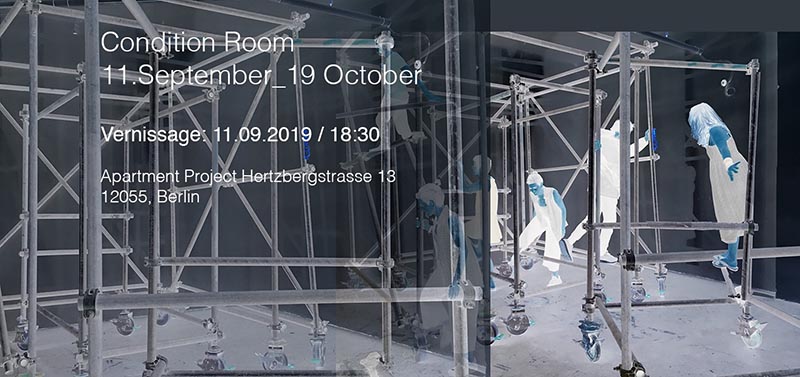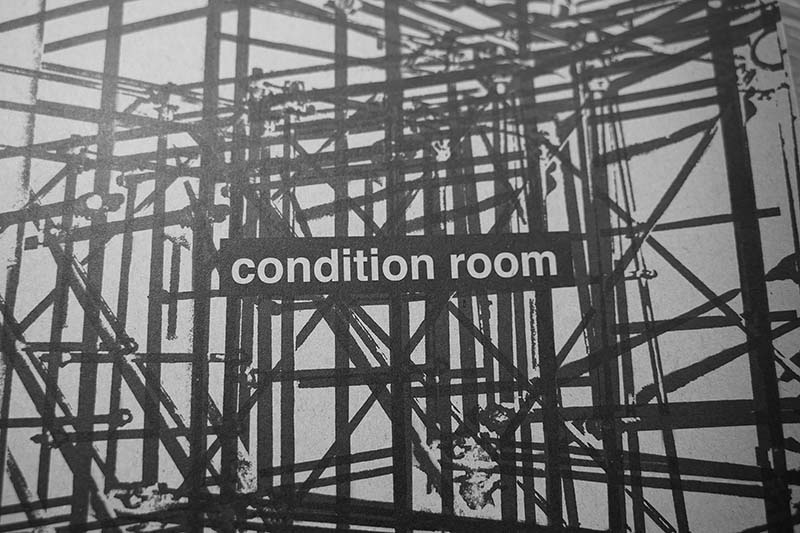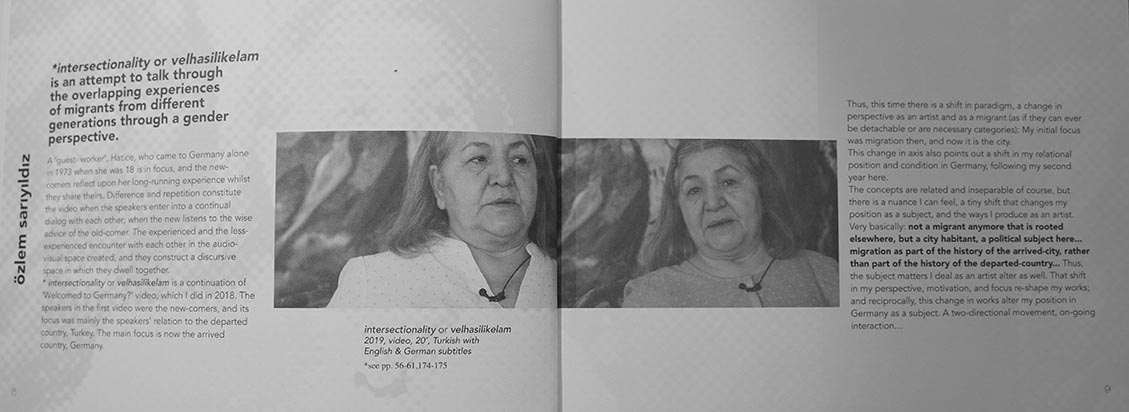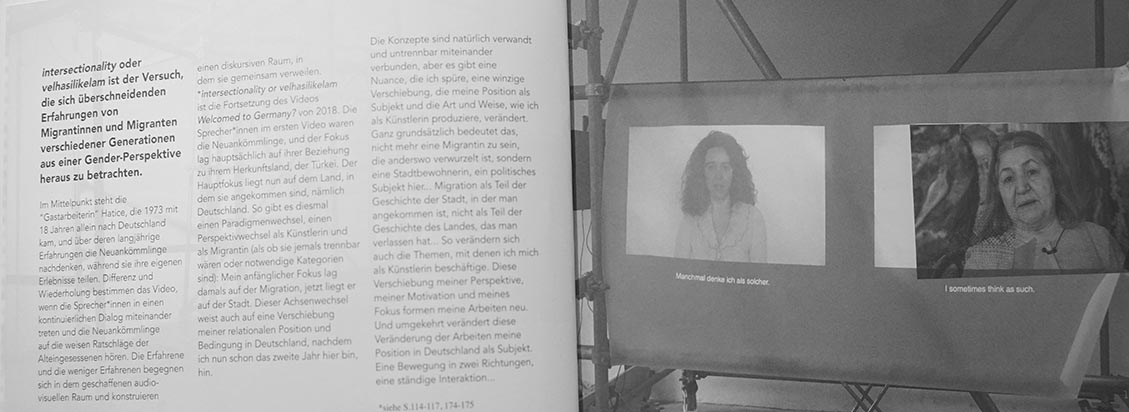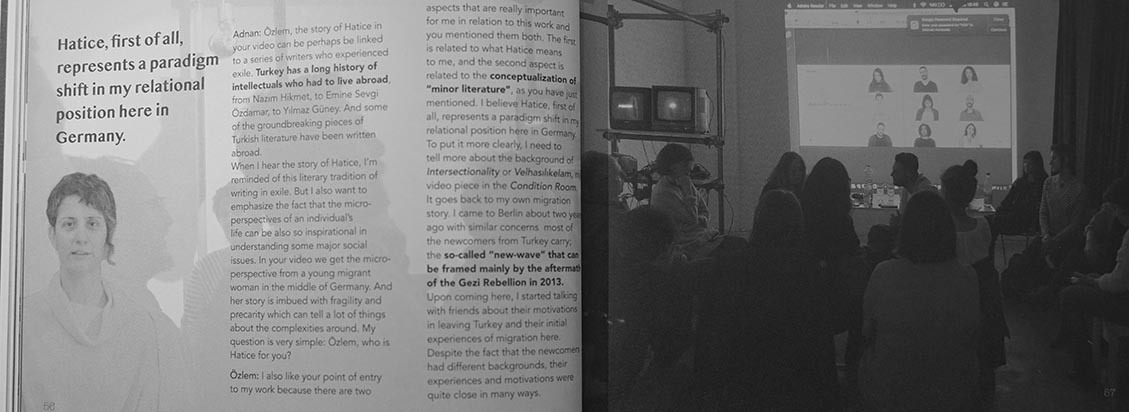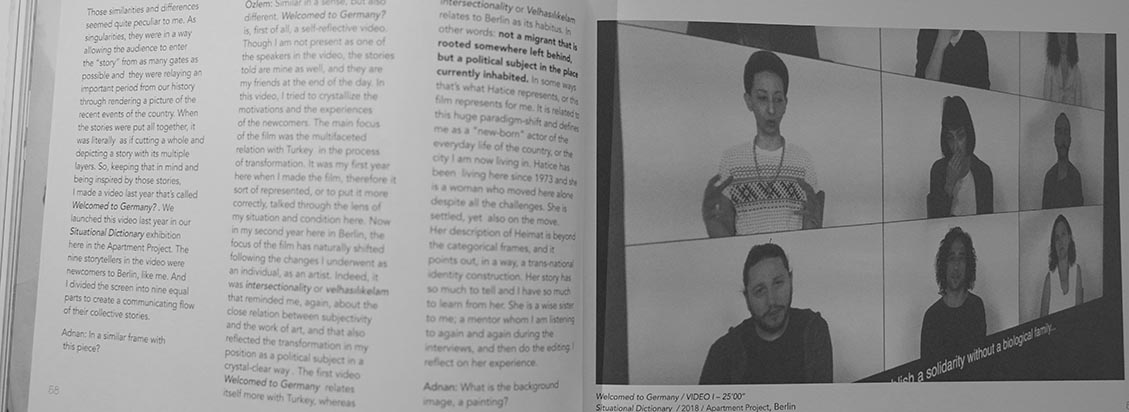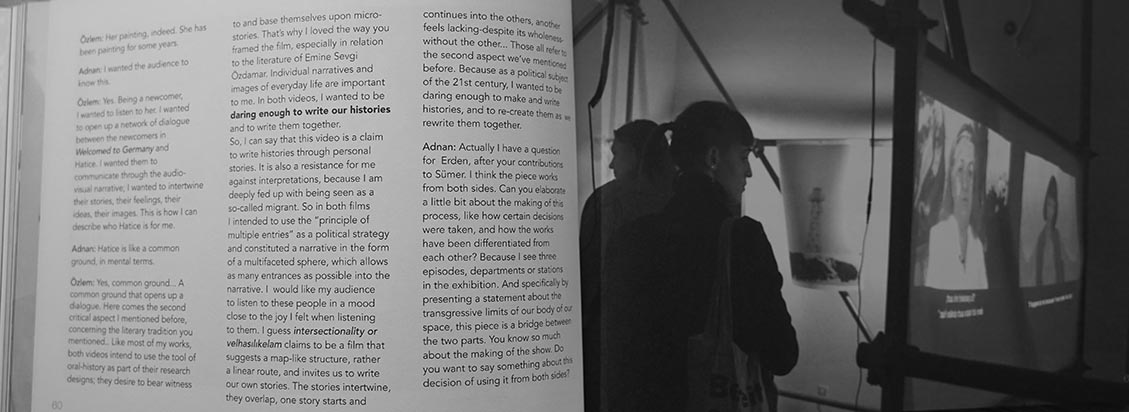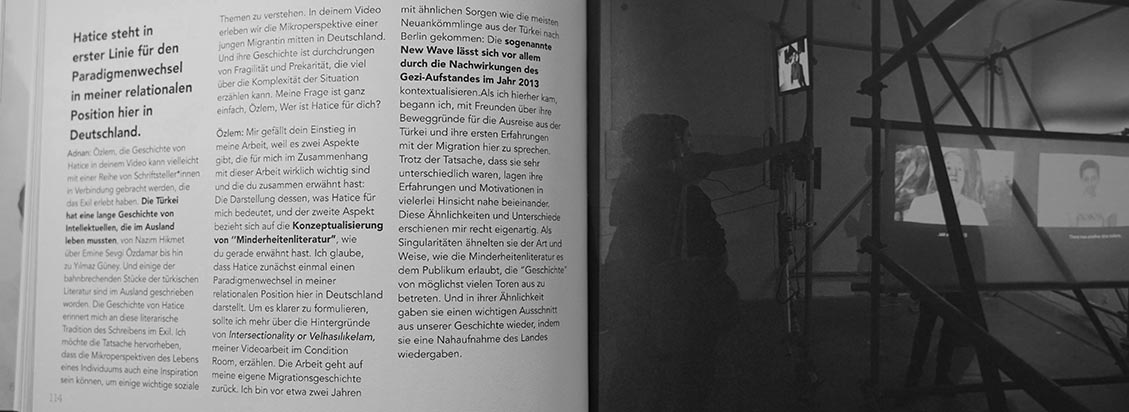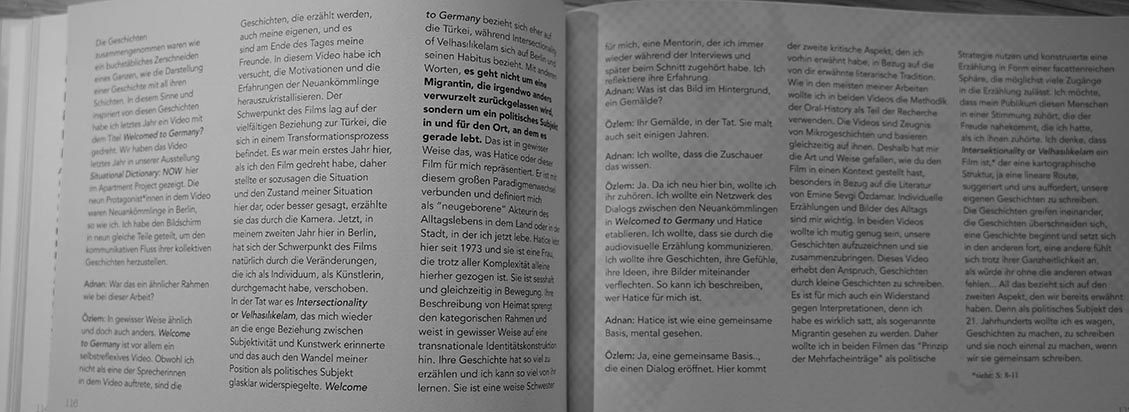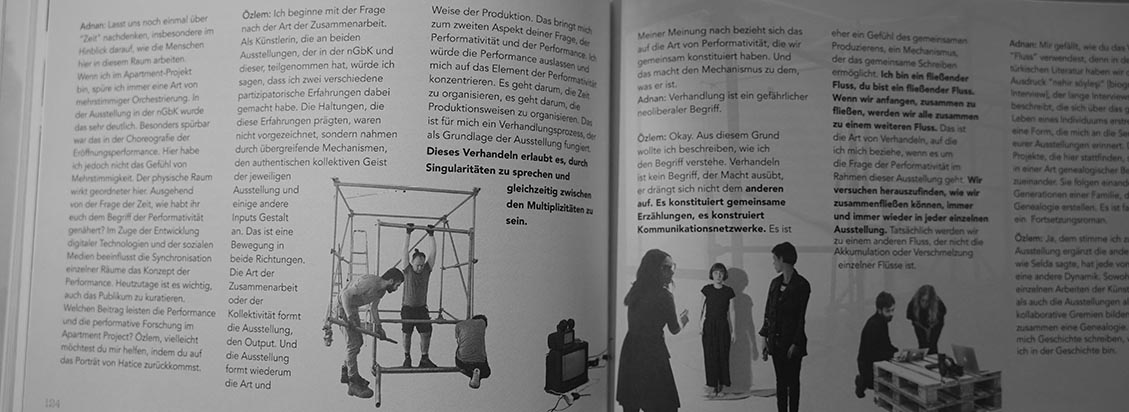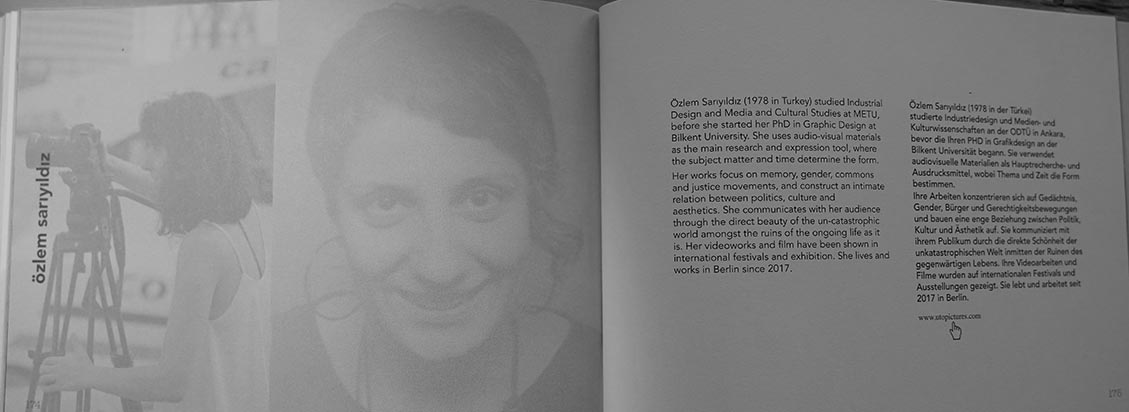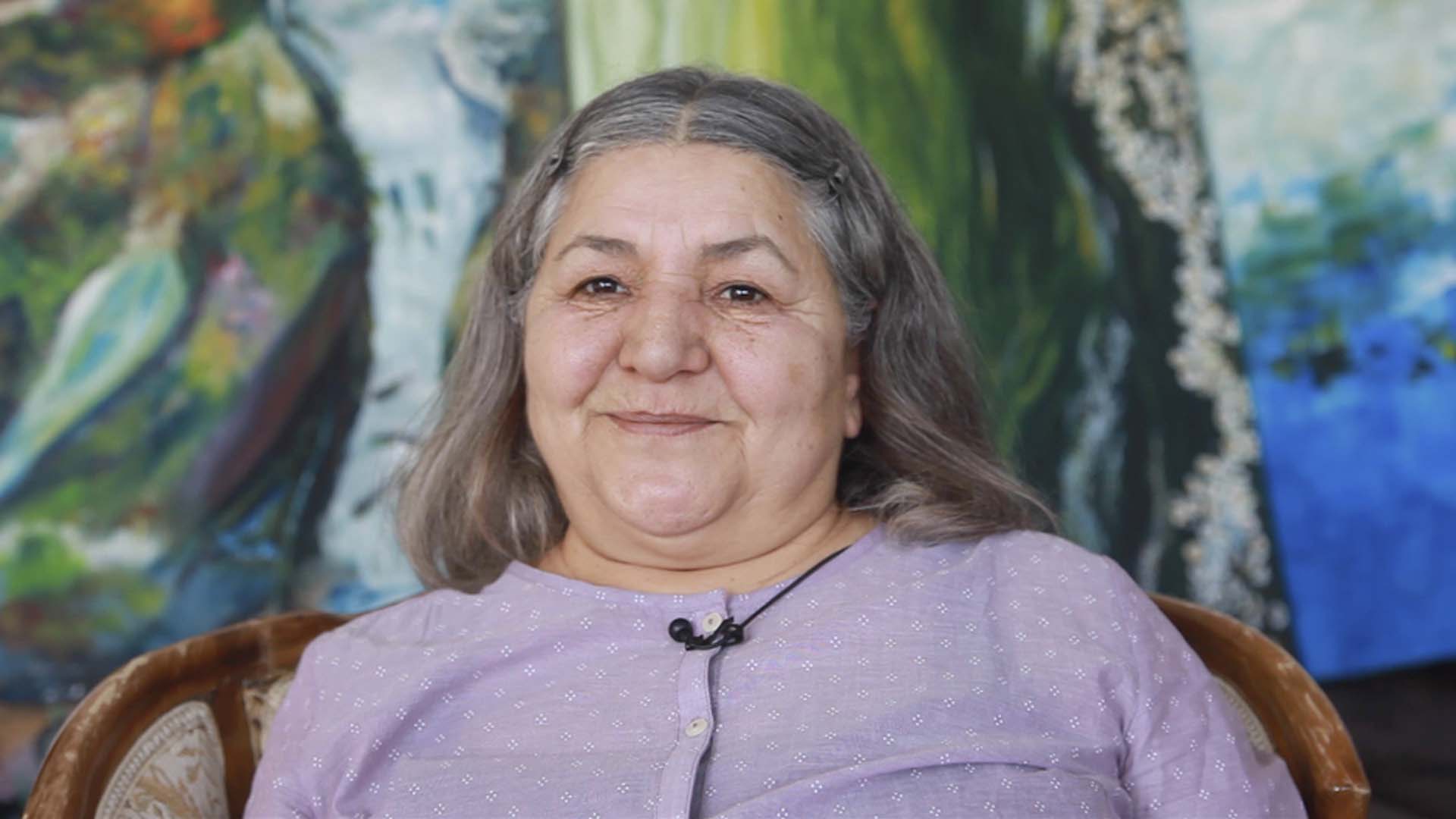
INTERSECTIONALITY OR VELHASILIKELAM
VIDEO; 19'20'; 2019; GermanyDirector / Camera / Montage
ABOUT
'intersectionality or velhasılıkelam' is the preliminary video of my work-in-progress,
a feature-length essay-film, that claims to be an autobiography made out of an
assemblage of biographies; and that is based on oral-history research with the first
generation women workers to Germany from Turkey (1961-1973) who migrated alone,
and their audio-visual (mis/dis)representation at the time.
......
FRAGMENTS FROM THE PANEL DISCUSSION:
'intersectionality or velhasılıkelam' is an attempt to talk through the overlapping
experiences of migrants from Turkey to Germany from different generations through
a gender perspective. A 'guest-worker', Hatice, who came to Germany alone in 1973
when she was 18 is in focus, and the new-comers reflect upon her long-running experience
while they share theirs. Difference and repetition constitute the video when the speakers
enter into a continual dialog with each other; when the new listen to the wise advice of
the old-comer. The experienced and the less-experienced encounter with each other in the
audio-visual space created, and they construct a discursive space in which they dwell
together.
'intersectionality or velhasılıkelam' is also a follow-up of the documentary 'Welcomed to Germany?'
which I did in 2018. The speakers in the first video were the new-comers, and its focus was
mainly the speakers' relation to the departed country, Turkey. The main focus is now
the arrived country, Germany. Thus, this time there is a shift in paradigm, a change in
perspective: My initial focus was migration then, and now it is the city.
This change in axis also points out a shift in my relational position and condition in
Germany, following my second year here. The concepts are related and inseparable of course,
but there is a nuance I feel, a tiny shift that changes my position as a subject,
and the ways I produce. Very basically: not a migrant anymore that is rooted elsewhere,
but a city habitant, a political subject here... migration as part of the history of
the arrived-city, rather than part of the history of the departed-country; stories of
the migrants as a constitutive element of the history of the city for a more democratic
history-writing...
Thus, the subject matters I deal with as an artist alter as well. That shift in my perspective,
motivation, and focus re-shape my works; and reciprocally, this change in works alter my
position in Germany as a subject. A multi-directional movement, on-going interaction..
...
